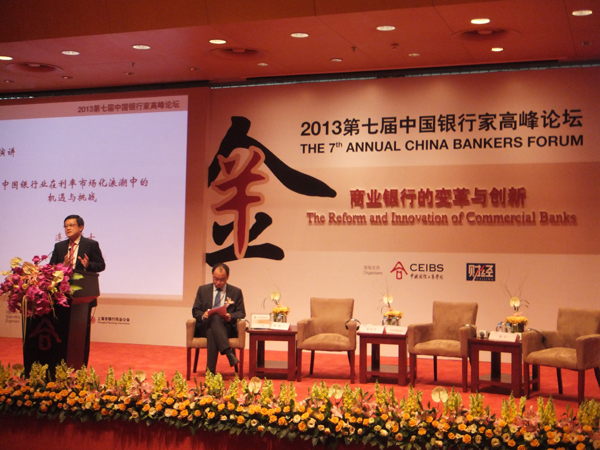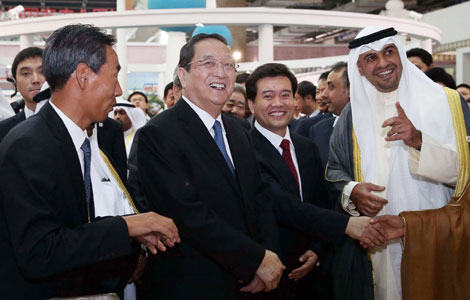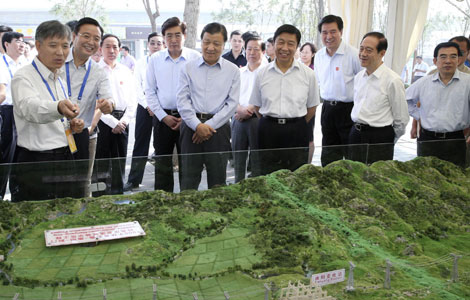

 |
|
Leading economists, scholars and senior banking executives shared their views on new challenges for commercial banks in China during CEIBS' 7th China Bankers Forum held in Beijing on Sept 14,2013. Organized by China Europe International Business School (CEIBS) and Caijing Magazine and co-organized by CEIBS Lujiazui Institute of International Finance and the Shanghai Banking Association, the forum was entitled "The Reform and Innovation of Commercial Banks".[Photo by Huang Shuo / chinadaily.com.cn] |
Leading economists, scholars and senior banking executives shared their views on new challenges for commercial banks in China during CEIBS' 7th China Bankers Forum held in Beijing on Sept 14. Organized by China Europe International Business School (CEIBS) and Caijing Magazine and co-organized by CEIBS Lujiazui Institute of International Finance and the Shanghai Banking Association, the forum was entitled "The Reform and Innovation of Commercial Banks".
CEIBS Vice President, Co-Dean and Professor of Strategy Zhang Weijiong began his welcome address by thanking Caijing Magazine for its long-term cooperation and efforts in developing the CEIBS China Bankers Forum into one of the industry's most influential events. He also set the stage for the day's discussions by briefly outlining the challenges and opportunities facing the banking industry today.
Dai Xiaojing, executive director of the Stock Exchange Executive Council and President, SEEC Media Group, also spoke about those challenges in his welcome address. He said that interest rate liberalization will push forward the transformation of the banking sector, and suggested that the regulatory framework and market forces will help determine the path of banks' transformation as well as the types of commercial banks that will be needed.
Cai Esheng, former vice-chairman of China Banking Regulatory Commission, said that interest rate liberalization will increase competition, and made the point that the key to competition between banks should be about who is best at addressing the challenges of the market, not who is biggest. He said that banks must now focus on meeting the needs of the people, a point that was emphasized throughout the day by other speakers as well. Greater risk tolerance to meet the financing needs of small- and micro-sized businesses is of particular importance, he said.
Caio Koch-Weser, vice-chairman with Deutsche Bank Group, added a European perspective on the macro-economic environment to the discussion. He said financial innovation and reform are at the top of the agenda for countries around the world, and will be necessary to put the recovery of the global economy on a firm footing.
Cao Yuanzheng, chief economist at Bank of China, spoke about the key factors in China's macro-economic environment that will impact the banking sector. These include an aging population, a focus on urbanization, the slowdown in the economy, the shift away from a reliance on export manufacturing to rely more on domestic consumption as an engine for economic growth, and constraints on resources and environment.
The role technology plays in driving innovation was the focus of presentation by Sushil Saluja, managing director of Financial Services Asia Pacific, Accenture. He said the key areas in which technology is a factor include: improving customer service and efficiency; mobility, which is leading more customers to embrace online banking, and use their mobile phones for more complex transactions; social media, which allows banks more ways to engage with customers; analytics and big data, which are the engine that drive technological innovations by allowing banks to better understand their customers' needs.
Contact the reporter at larryhuangshuo@163.com







